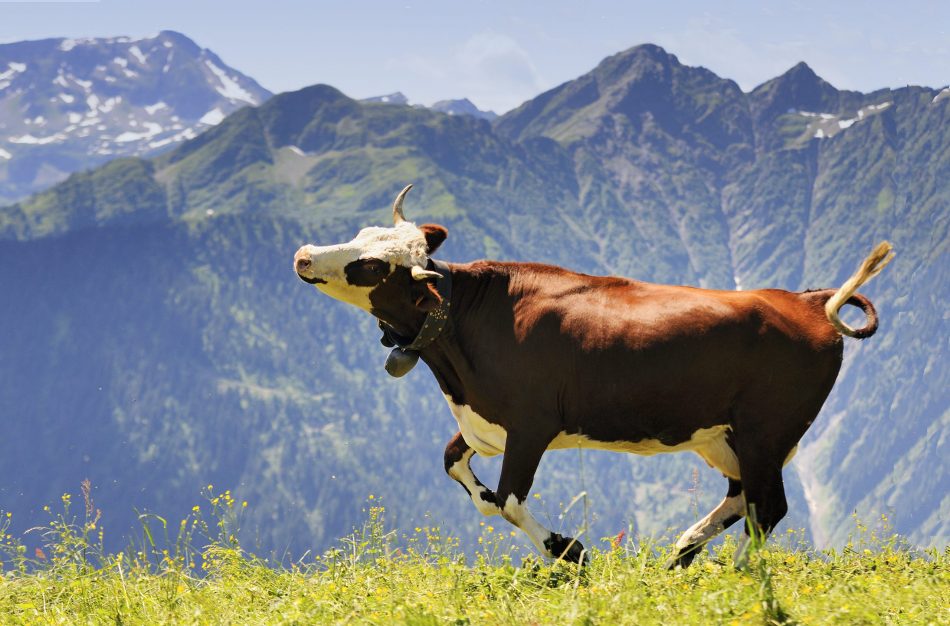Circularity
Understanding the value of a circular economy and identifying circular solutions are essential to changing our world for good. Circularity, or the zero-waste principle of keeping materials in a closed loop and away from landfills and incinerators, is the future. Find out about the latest innovations and solutions accelerating the transition towards a circular economy in the articles here from The Optimist Daily.

6 LGBTQ+ climate activist organizations to check out and support
Bringing together diverse voices and perspectives helps tackle problems more effectively. One of the greatest problems we face today is the issue of climate change and climate justice. The chances we have to overcome these threats become stronger when we rally together, despite (or because of) our Read More...

Boston e-scooter company soon to unveil safer model
While shared electric scooters have boomed over the last few years, there remain many concerns about their safety. Scooter-related injuries have become so common that some law firms offer legal action against scooter manufacturers on their websites. Some cities like Miami and New York have kicked Read More...

How to make your home a low-waste place
The average American consumer produces just under five pounds of trash each day, adding up to around 1,642 pounds per person annually. That’s a whole lot of rubbish! So what can we do about it? You may have heard of the phrase “zero-waste,” where the idea is to let nothing you use go to a Read More...

The environmentally friendly, flying ships of the future
These days, electric cars, bikes, scooters, trams, and trains are common modes of transport. However, one mode of transport which hasn’t got the electric memo is ferries, which are still almost exclusively powered by fossil fuels. The problematic factor here is battery capacity, which cannot last Read More...

“Digital twin” of Ithaca, NY helps to plot climate ambitions
In 2019, Ithaca, New York was the first US city to resolve to eliminate or offset all carbon emissions by 2030. The college town allocated $100 million to fund the effort, but they still needed a plan of how to decarbonize all its buildings. Two architectural professors from Cornell University Read More...

This doggy-bag law in Spain intends to curb food waste
Did you know that in Spain, it’s not a common practice to take home uneaten food from a restaurant? According to news site The Local, “Spain isn’t a country with a longstanding tradition of leftover restaurant food going in doggy bags, perhaps as a combination of it not being part of the Read More...

This “superworm” eats and degrades plastics
Researchers from the University of Queensland have discovered that thanks to a bacterial enzyme in their gut the Zophobas morio “superworm” can eat through polystyrene plastic. This is the main compound of Styrofoam. Over a three-week period, the research team fed these “superworms” Read More...

The future of wind turbine towers may be made of wood
While wind turbines only cost 11 grams of carbon per kilowatt-hour (compared to the combustion of natural gas at 450 grams), there is always room for improvement. Opponents of wind energy have criticized the carbon footprint of the steel required to build wind towers and turbines. Unknowingly, they Read More...

This device helps farmers raise happier, healthier cows
Dairy farmers have a regular problem when it comes to testing their cows’ health and the quality of their milk. They have to ship milk samples to labs for each cow and wait on the results. Two MIT alumni aim to help with their new device which gives the same results in 10 minutes. Testing Read More...

California is making composting a statewide practice
Composting is an easy and fun way to cut down on our carbon emissions while making our own fertilizer. Despite this, a lot of green waste like vegetable scraps and lawn trimmings wind up in landfills. Here they rot and release methane, a greenhouse gas far more potent than carbon dioxide. Read More...


